Report on Multi-Trauma Cardiac-Arrest: Pathophysiology and Treatment
VerifiedAdded on 2022/09/16
|6
|1177
|18
Report
AI Summary
This report delves into the critical topic of multi-trauma cardiac arrest, examining its multifaceted nature and the associated challenges in patient care. It begins with a concise definition of cardiac arrest and underscores the poor outcomes often observed in multi-trauma cases. The report then explores the primary causes of morbidity and mortality, with a particular emphasis on brain injury, myocardial dysfunction, systemic ischemia, and persistent precipitating pathologies. It details the complex mechanisms of brain injury, including ischemia, reperfusion failures, and microvascular obstruction, as well as the clinical indicators such as coma and neuro-cognitive dysfunction. Furthermore, the report discusses the impact of cardiac arrest on myocardial function, the implications of systemic ischemia on multiple organ failure, and the contribution of various pathologies like pulmonary embolism and sepsis. The report concludes by highlighting the unique pathophysiology of multi-trauma cardiac arrest, which is often complicated by the initial injury and underlying comorbidities. This report provides a comprehensive overview of the subject, supported by relevant references, providing valuable insights for healthcare professionals and students alike.
1 out of 6
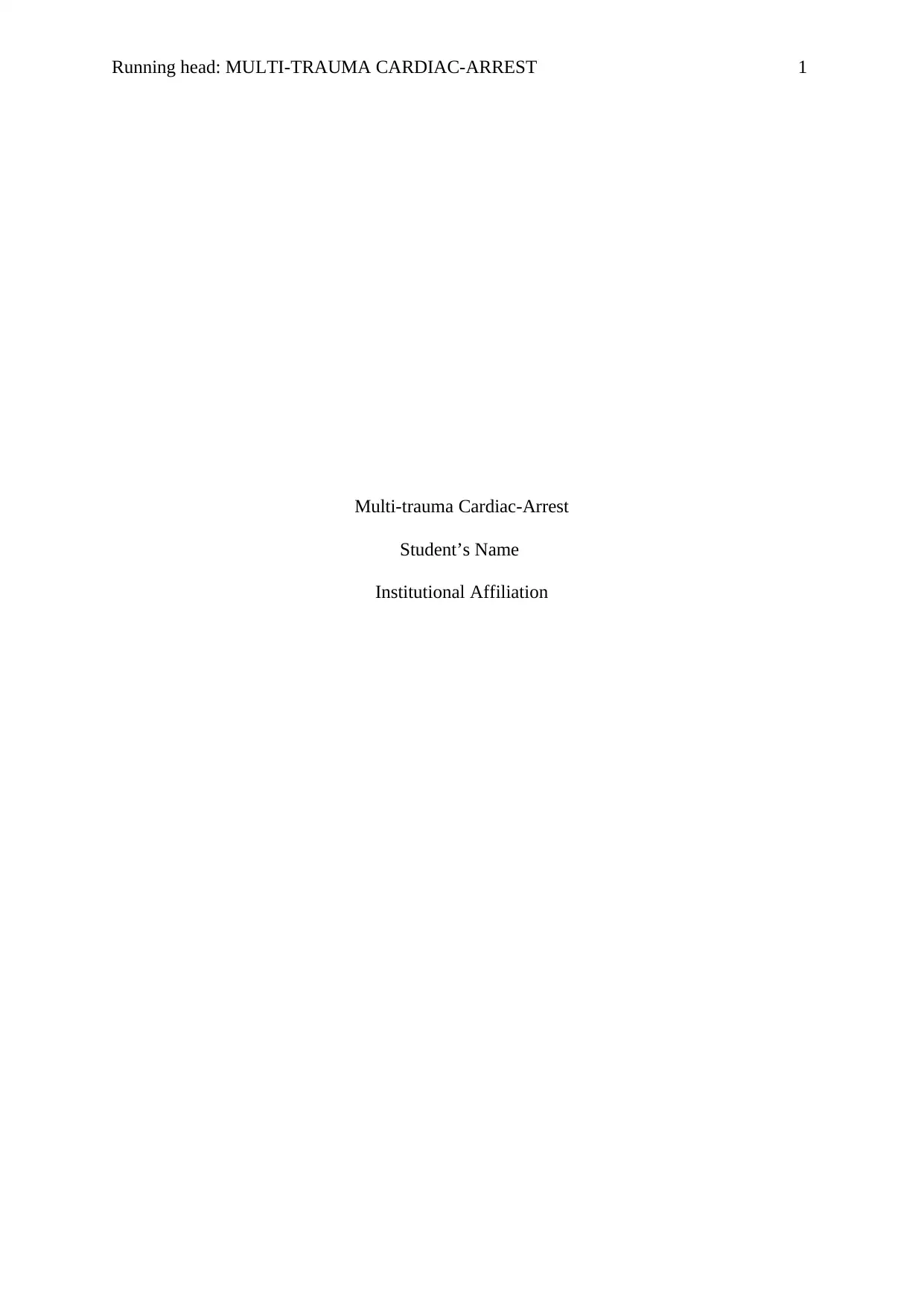
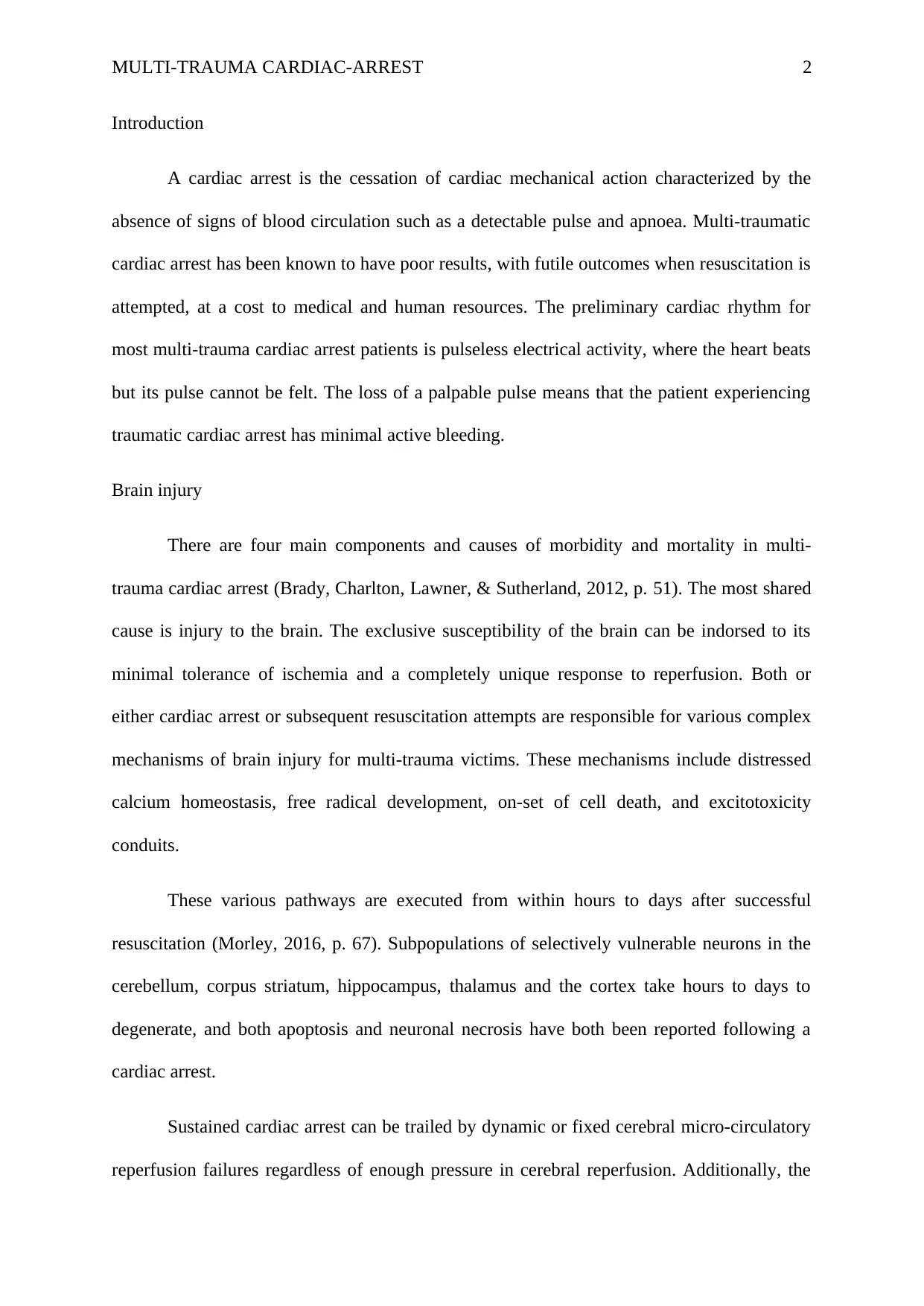
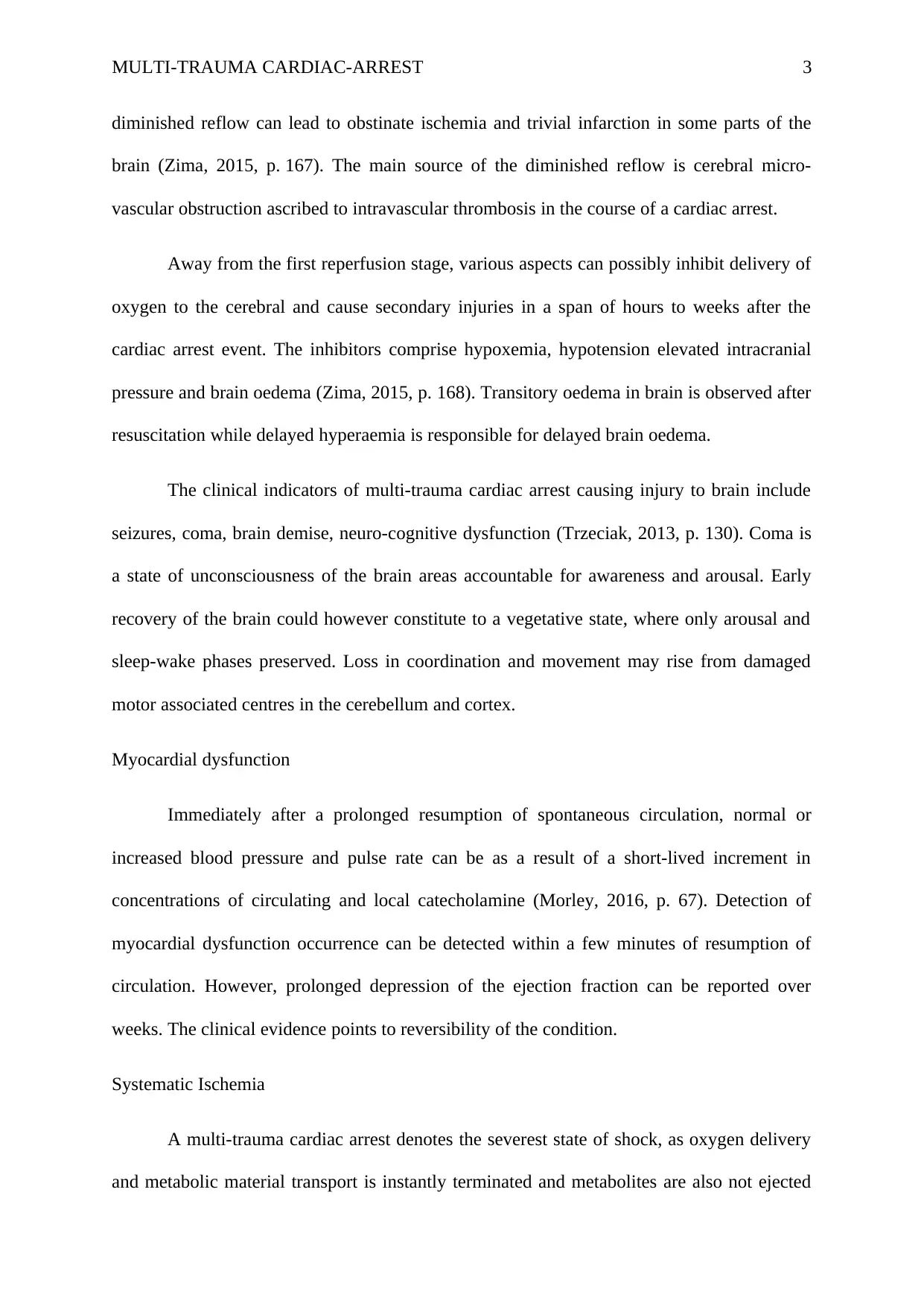

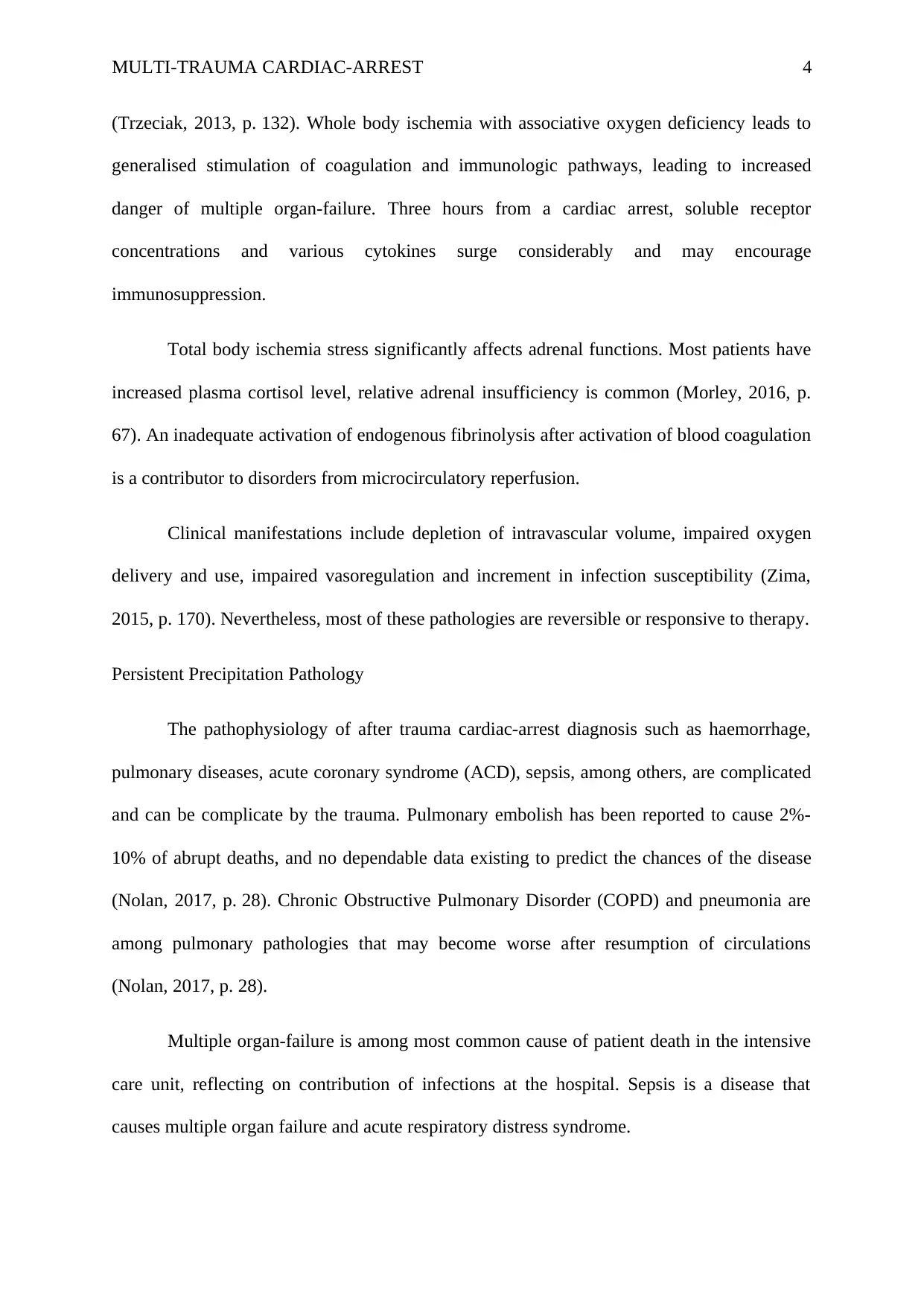
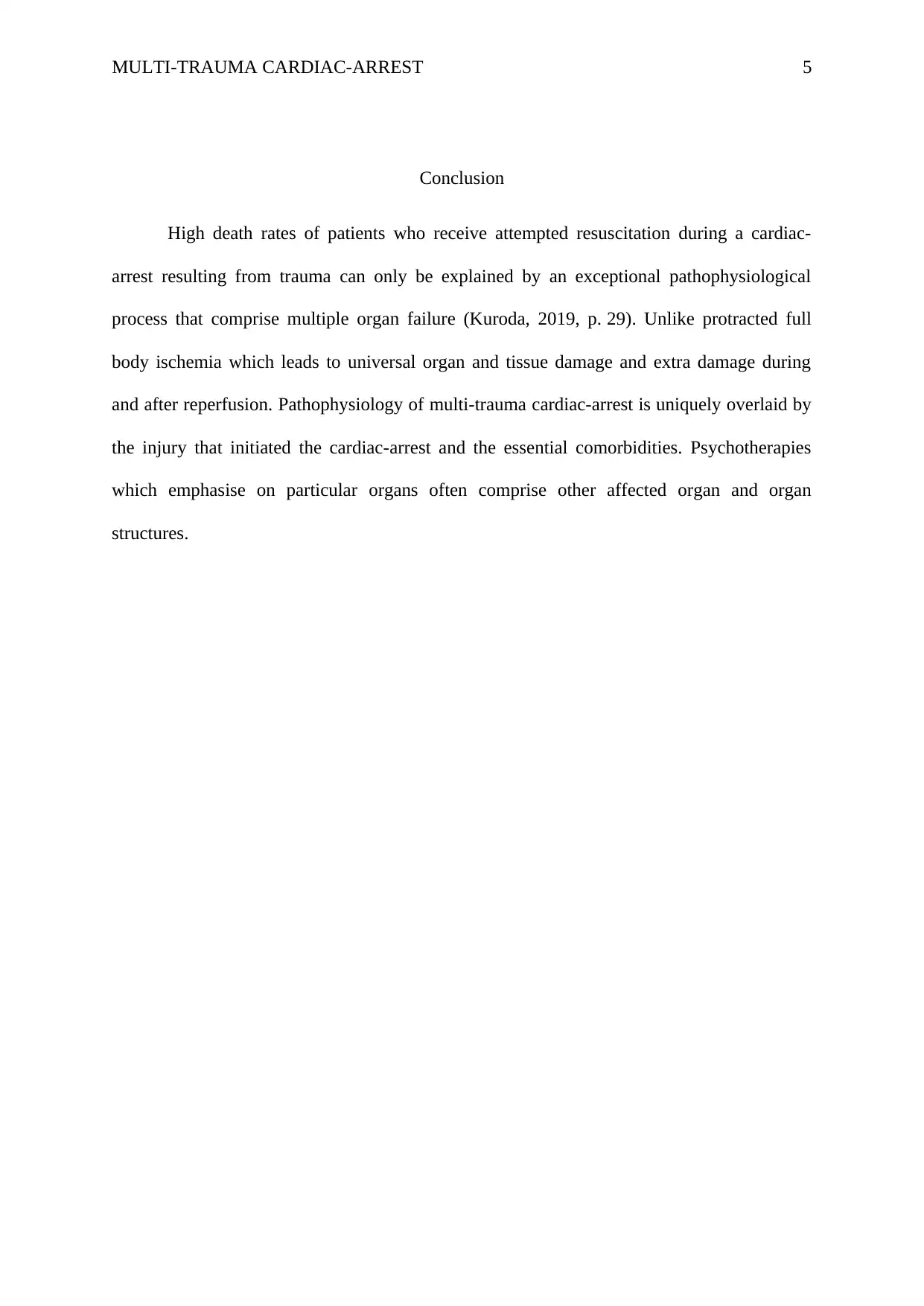
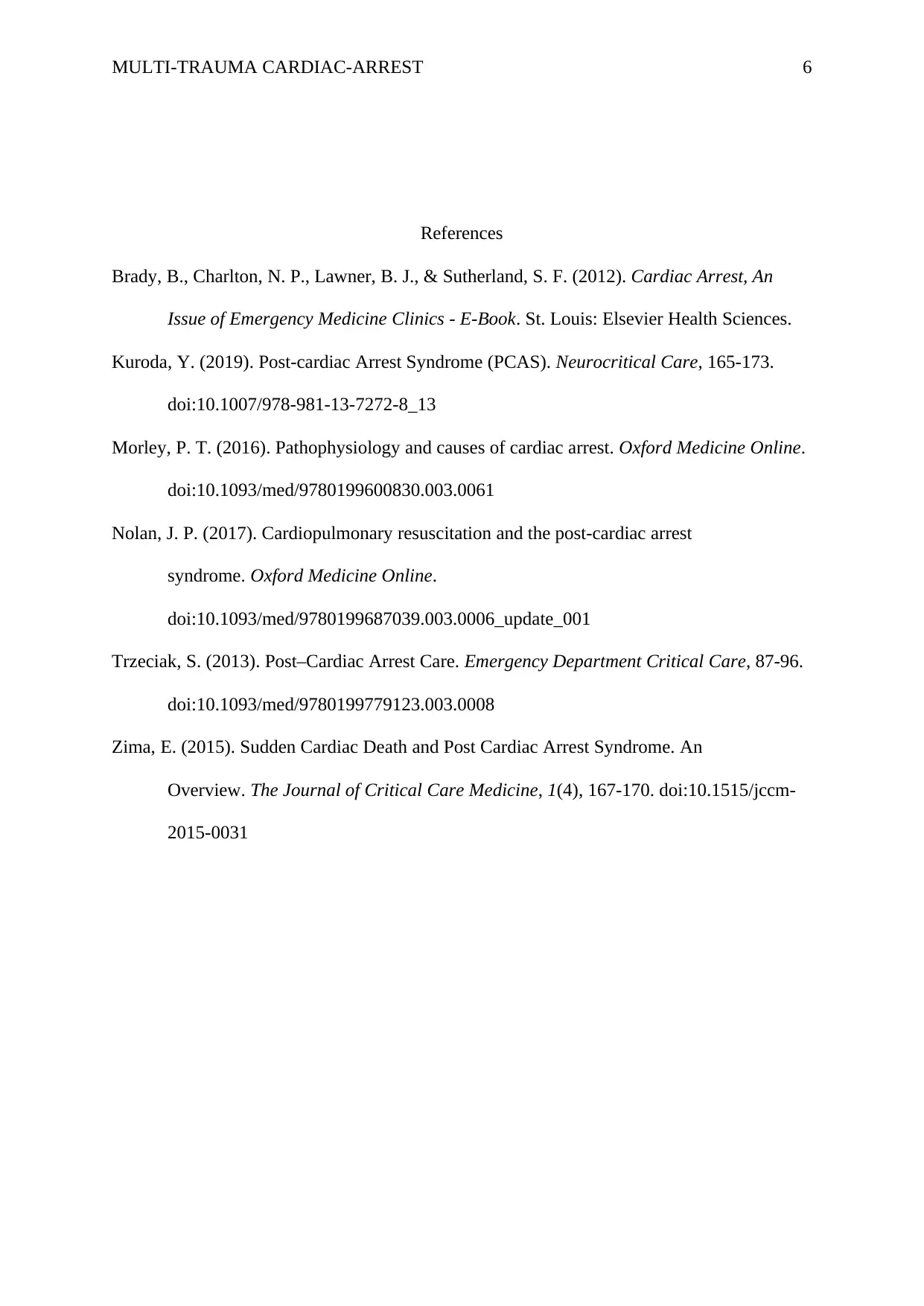
![[object Object]](/_next/static/media/star-bottom.7253800d.svg)